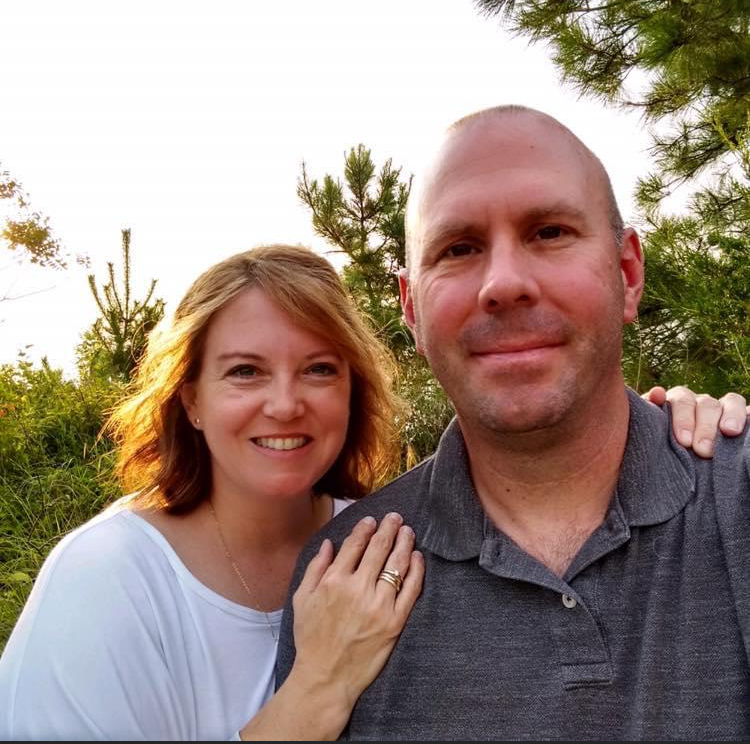written by Christi Engle
Some of you who know me personally may know that when I’m in the car alone, if I’m not listening to a podcast or a book on tape, I’m listening to sports radio. One of the programs I listen to features a segment called “Where Colin was Right or Wrong.” He then shares three things he talked about on the radio that he got right in the previous few days, and three things he got wrong. When I first heard this, I thought, “Wow, that’s brave.” In my own lived experience, if I was Colin and someone pitched me the idea of clearly telling the audience the ways I got my commentary wrong on my own radio program (on which I’m supposed to be the expert), fear would set in. If I admit I was wrong will people doubt my knowledge? Will ratings go down? Will I lose my job? The lie is that the mask of sports commentator/radio personality requires my perfection in this area. The trap is that I now have to keep up that image to prove my worth, keep my job, and save face. Remaining committed to authenticity is vulnerable work!
I’m going to go out on a limb here and say that far too often, authenticity doesn’t come to us naturally. We are trained from a very early age to smile, be polite, kiss grandma when she arrives, say you like the gift, stop that crying, “never let ‘em see you sweat.” In our culture and climate, even as adults, it is not our home base. It’s not how we’re conditioned to be. Corporations spend lots of dollars getting the “face” of their organization out there to promote themselves, and they’re not usually listing a “Where we can improve” section on their pamphlets. Modern American values within the workplace esteem efficiency, image consciousness, putting your best foot forward, anything to benefit the bottom line…we are literally inundated with messages about what is expected from us from our earliest days. For our efforts we gain approval but sacrifice our true selves. We can stay but we don’t belong. Or we do, but only if we keep up the dance. Brene Brown, a shame researcher and teacher of authenticity and vulnerability, says it best: “In the absence of authentic connection, we suffer. And by authentic I mean the kind of connection that doesn’t require hustling for acceptance and changing who we are to fit in.”
If we’re spending more time crafting an image to suit, meet, or pacify the expectations of others, rather than living in our imperfect, messy, real selves, then we are compromising authenticity. And without authenticity, true relationship cannot happen. It just can’t, because we’re not having an experience or relationship with the true essence of the person; we’re interacting with a mask, a mirror, or a mirage.
Recently, invested parties at The Restoration Project identified authenticity as a core value and guiding principle of our church community. In my view, individual and corporate authenticity are hard to come by and harder to maintain. True authenticity comes at a price. Since we aren’t conditioned to value it, it isn’t always well received by those committed to towing the party line. It can leave us feeling vulnerable, open to attack, and lonely. But when accepted and championed, when given room (and even permission) to flourish and grow, when modeled, it opens up doors to effective relationship building within a community that is truly special.

Authenticity allows people to be right where they are, in real time. It doesn’t offer simplistic platitudes to the bereaved to rush along their process to make ourselves feel better. It gets in the boat with them and sits shiva with them without an intention to fix it. It acknowledges all of the seasons: “A time to weep, a time to laugh; a time to mourn, and a time to dance; a time to seek and a time to lose…” – and it doesn’t insist on a timeframe for any of it. Authenticity honors the present: it doesn’t pine for the past or long for the future. It believes the best but accepts the reality. It honors the night and the day, recognizing that newness and growth happen in both.
At TRP, the value of authenticity is in more than just, “How are you spending my tithe?” (but also, including that.) It’s being real about finances. And unmet goals. And limitations. It’s admitting that we don’t have all the answers to all the faith questions – and that’s ok (not just ok; good!). It’s creating an atmosphere that sees individuals as, well, individuals, and not a conglomerate whole who should get on board with a certain way of thinking, behaving, or believing. It’s acknowledging the pastors are regular people with their own struggles, ideas, questions, thoughts, and ways of seeing the world – and they get to speak as their very own selves, not just on behalf of the group. It’s meeting people right where they truly are and not where I’d prefer them to be for my own edification, leverage, or comfort.
At TRP we light candles, offer prayers of praise and lament, read and study the Bible, practice contemplation, work together to meet needs in the church or local community, give of our time and money, stand on street corners to affirm the value of all people, serve the homeless, minister to the hurting, build wheelchair ramps, collect diapers and personal supplies and Christmas presents because we heard of a need, deliver casseroles and orange crushes in hopes that it’ll communicate love and comfort, invite with open arms those who need a church community, respect differences, and love and serve Jesus together. We strive to do the work of justice, love mercy, and walk humbly with God. It’s not perfect, but it’s real – just like the individuals who make up our whole.
If this matches up with your core values and you would benefit from a faith community to learn, process, serve, and grow with, please join us.
We’re looking forward to meeting you – just as you are.

Christi is a transplant from Pennsylvania (affectionately known as “The Homeland”) and likes to get back there as often as she can. She is a graduate of Lancaster Bible College where she holds a Bachelor’s degree in Biblical Counseling. She is currently working toward Enneagram teaching certification and will soon begin Master’s work in Clinical Mental Health Counseling.
Christi loves daytrips, podcasts, sports radio, reading books (usually 3-4 at a time), the Phillies and Eagles, the Enneagram, and feeding people. She loves to cook and bake equally and collects recipes that contribute to her Asian-Mennonite-Tex/Mex fusion-style cooking.
Christi is an Enneagram 6 and is happy to talk with you further if you’re into shadow self, contemplative prayer, personality and temperament, and why you are the way you are (you know, light, easy-breezy conversation.)
She and Josh (a firefighter/paramedic and free lance sign language interpreter) have been married for almost 25 years. They’re parents to college students Luke and Nathan who are wonderful and complex and so very different from each other, and also super tall.